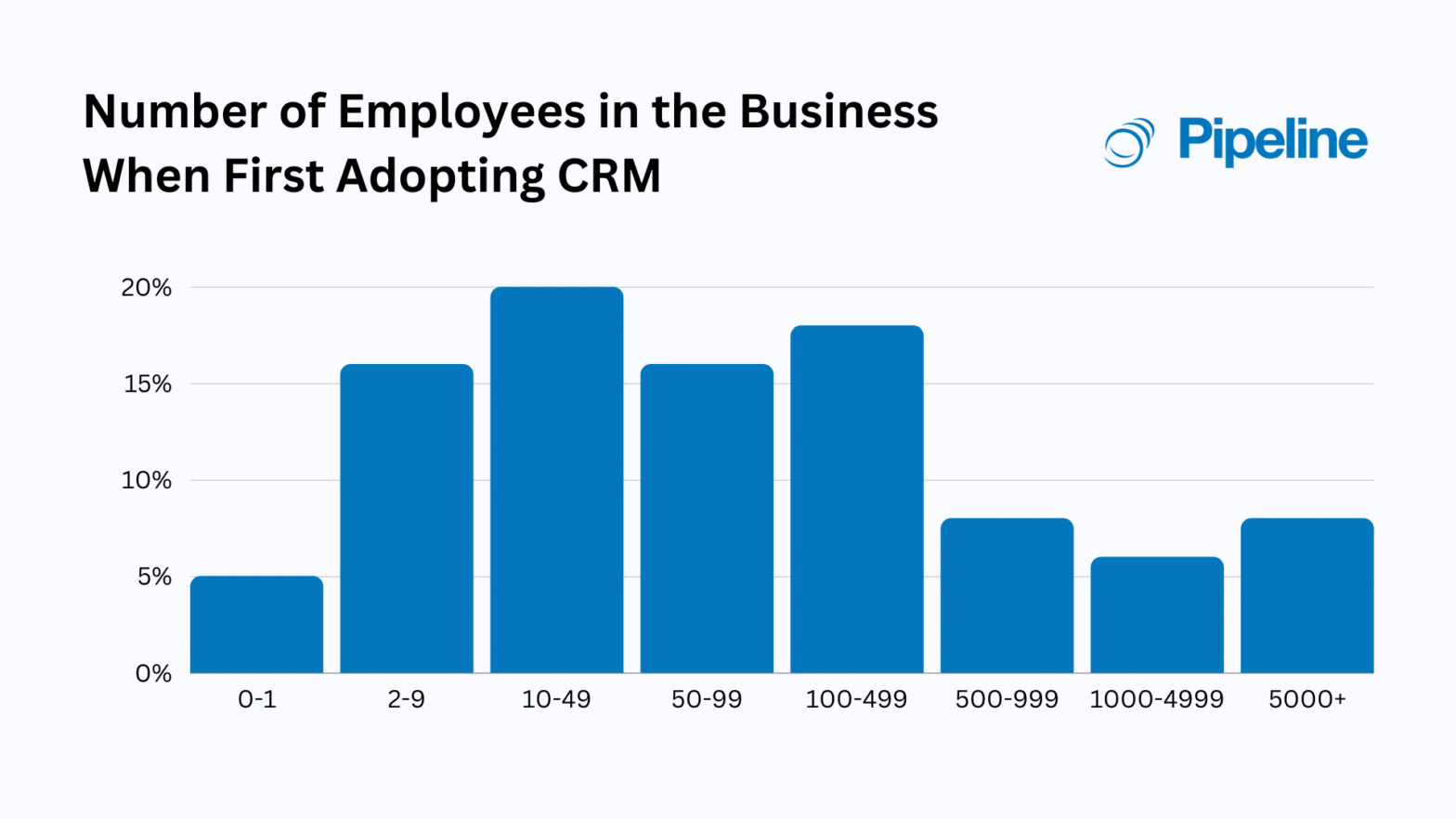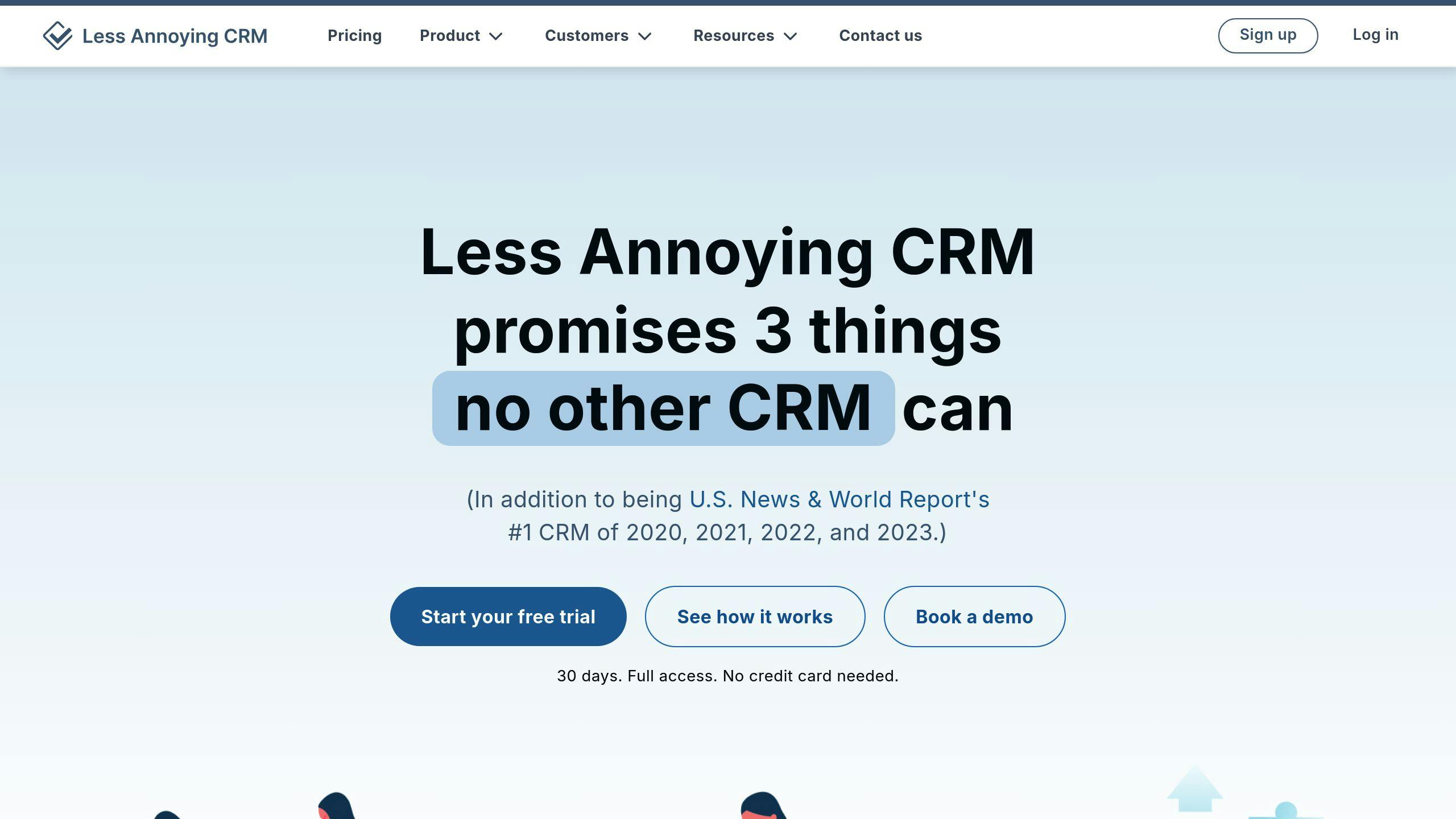
Elevate Your CRM Marketing with Webinars: A Comprehensive Guide to Hosting Success
In today’s fast-paced digital landscape, businesses are constantly seeking innovative ways to connect with their audience, nurture leads, and drive conversions. One powerful strategy that has gained significant traction is the integration of Customer Relationship Management (CRM) marketing with webinar hosting. This comprehensive guide delves into the intricacies of leveraging webinars to supercharge your CRM marketing efforts. We’ll explore everything from the fundamental concepts to the advanced techniques, ensuring you have the knowledge and tools to host successful webinars that resonate with your target audience.
Understanding the Synergy: CRM Marketing and Webinars
Before diving into the specifics, it’s crucial to grasp the synergistic relationship between CRM marketing and webinars. CRM marketing focuses on managing and analyzing customer interactions throughout the customer lifecycle. It involves collecting customer data, segmenting audiences, personalizing communications, and tracking engagement to build lasting relationships and drive sales. Webinars, on the other hand, are live or pre-recorded online presentations that allow businesses to educate, engage, and interact with their audience in real-time.
When these two powerful tools are combined, the results can be transformative. Webinars provide a platform to deliver valuable content, showcase expertise, and build trust with your audience. Simultaneously, your CRM system allows you to segment your audience, personalize webinar content, track attendee engagement, and measure the impact of your webinars on your overall marketing goals. This integration creates a feedback loop that continuously improves your marketing efforts and strengthens customer relationships.
The Benefits of Integrating CRM and Webinars
The advantages of integrating CRM and webinars are numerous and far-reaching. Here are some of the key benefits:
- Enhanced Lead Generation: Webinars are excellent lead magnets. They attract potential customers who are genuinely interested in your products or services. By integrating your CRM, you can capture valuable lead information during registration and track their engagement throughout the webinar.
- Improved Lead Nurturing: Webinars allow you to nurture leads by providing valuable content and building relationships. You can use your CRM to segment leads based on their interests and webinar attendance, then create targeted follow-up campaigns to move them further down the sales funnel.
- Increased Conversion Rates: By educating your audience and addressing their pain points, webinars can significantly increase conversion rates. You can use your CRM to track which webinar attendees convert into customers and analyze the factors that contribute to their success.
- Stronger Customer Relationships: Webinars provide a platform to interact with your audience, answer their questions, and build trust. By integrating your CRM, you can track customer interactions during webinars and use this information to personalize your communications and build stronger relationships.
- Data-Driven Insights: Webinars generate a wealth of data that can be used to improve your marketing efforts. By integrating your CRM, you can track attendee engagement, analyze webinar performance, and identify areas for improvement.
Planning Your CRM Marketing Webinar: A Step-by-Step Guide
Hosting a successful CRM marketing webinar requires careful planning and execution. Here’s a step-by-step guide to help you create a webinar that engages your audience and achieves your marketing goals:
1. Define Your Goals and Objectives
Before you start planning your webinar, it’s essential to define your goals and objectives. What do you want to achieve with your webinar? Are you trying to generate leads, nurture existing leads, or drive sales? Your goals will guide your content, format, and promotion strategy. Be specific and measurable. For instance, instead of saying “increase leads,” aim for “generate 50 new qualified leads.”
2. Identify Your Target Audience
Who are you trying to reach with your webinar? Understanding your target audience is crucial for creating content that resonates with them. Consider their demographics, interests, pain points, and needs. Use your CRM data to segment your audience and identify the specific groups you want to target with your webinar. This segmentation will allow you to tailor your content and messaging to their specific needs, increasing the likelihood of engagement and conversion.
3. Choose a Compelling Topic
The topic of your webinar is critical to its success. It should be relevant to your target audience and address their needs or interests. Research your audience’s pain points and create a topic that provides valuable solutions. Consider current industry trends and topics that are generating buzz. Your topic should be specific, focused, and offer actionable insights. A well-defined topic will attract the right audience and keep them engaged throughout the presentation.
4. Select the Right Webinar Platform
Choosing the right webinar platform is crucial for a smooth and engaging webinar experience. Consider factors such as ease of use, features, pricing, and integration with your CRM system. Some popular webinar platforms include Zoom, GoToWebinar, WebinarJam, and Demio. Ensure the platform offers features that meet your needs, such as screen sharing, chat functionality, polls, and Q&A sessions. Integration with your CRM is crucial for automatically capturing attendee data and tracking engagement.
5. Create Engaging Content
The content of your webinar should be informative, engaging, and valuable to your audience. Create a clear agenda and structure your presentation logically. Use visuals, such as slides, videos, and demonstrations, to keep your audience engaged. Aim for a balance of information and interaction. Incorporate polls, Q&A sessions, and live demonstrations to encourage audience participation. Keep the content concise and focused on providing actionable insights. Remember to practice your presentation to ensure a smooth and confident delivery.
6. Promote Your Webinar
Effective promotion is essential for attracting attendees to your webinar. Use a variety of channels to promote your event, including email marketing, social media, your website, and paid advertising. Create compelling registration pages that highlight the benefits of attending your webinar. Send out email invitations to your CRM contacts and leverage social media platforms to reach a wider audience. Consider running paid advertising campaigns to target specific demographics and interests. Promote your webinar well in advance of the scheduled date to give people ample time to register.
7. Host Your Webinar
On the day of your webinar, ensure that you are well-prepared and that your technology is working correctly. Start your webinar on time and welcome your attendees warmly. Introduce yourself and your topic clearly. Deliver your content confidently and engage your audience throughout the presentation. Encourage audience participation and answer their questions thoughtfully. Monitor the chat and Q&A sessions and address any technical issues promptly. Remember to stay focused on your goals and deliver a valuable experience for your attendees.
8. Follow Up with Attendees
Following up with your webinar attendees is crucial for maximizing the impact of your webinar. Send a thank-you email to all attendees, including a link to the recording and any resources you mentioned during the presentation. Segment your attendees based on their engagement level and send targeted follow-up emails. For example, you might send a special offer to attendees who asked questions or downloaded a resource. Use your CRM to track your follow-up activities and measure their effectiveness. This will help you nurture leads, drive conversions, and build stronger customer relationships.
9. Analyze and Optimize
After your webinar, analyze your results to identify areas for improvement. Review your attendance rates, engagement metrics, and conversion rates. Use your CRM data to track the impact of your webinar on your overall marketing goals. Identify what worked well and what could be improved. Use this data to optimize your future webinars and continuously improve your marketing efforts. Consider surveying attendees to gather feedback on their experience and identify areas for improvement.
Leveraging CRM for Webinar Success
Your CRM system is the backbone of your webinar success. It allows you to manage leads, segment your audience, personalize communications, and track engagement. Here’s how to leverage your CRM to maximize the impact of your webinars:
1. Segmentation and Targeting
Use your CRM data to segment your audience based on demographics, interests, behaviors, and past interactions. This allows you to create targeted webinar content and promotions that resonate with specific groups. For example, you can segment your leads based on their industry, job title, or stage in the sales funnel. Then, you can create webinars that address their specific pain points and offer solutions tailored to their needs. This targeted approach increases the likelihood of engagement and conversion.
2. Personalized Invitations and Reminders
Personalize your webinar invitations and reminders using your CRM data. Address your contacts by name and tailor your messaging to their interests and needs. Highlight the benefits of attending the webinar that are most relevant to their specific situation. Use your CRM to automate the sending of invitations and reminders, ensuring that your contacts receive timely and personalized communications. Personalization increases the likelihood of registration and attendance.
3. Automated Registration and Data Capture
Integrate your webinar platform with your CRM to automate the registration process and capture attendee data. This allows you to automatically add new registrants to your CRM and track their engagement throughout the webinar. You can also use your CRM to pre-populate registration forms with existing contact information, making it easier for people to register. This integration saves time and ensures that you have accurate and up-to-date information on your leads.
4. Lead Scoring and Qualification
Use your CRM to score and qualify leads based on their webinar engagement. Track metrics such as registration, attendance, participation in polls and Q&A sessions, and downloads of resources. Assign scores to leads based on their engagement level and use these scores to prioritize your follow-up activities. This allows you to focus your efforts on the leads who are most likely to convert. Lead scoring improves the efficiency of your sales and marketing efforts.
5. Post-Webinar Follow-up Campaigns
Create automated follow-up campaigns in your CRM to nurture leads after your webinar. Segment your attendees based on their engagement level and send targeted emails that address their specific needs and interests. Include links to the webinar recording, resources, and special offers. Use your CRM to track your follow-up activities and measure their effectiveness. These campaigns help you move leads further down the sales funnel and increase conversion rates.
6. Performance Tracking and Analytics
Use your CRM to track the performance of your webinars and analyze your results. Track metrics such as registration rates, attendance rates, engagement metrics, and conversion rates. Use this data to identify what worked well and what could be improved. Analyze the ROI of your webinars and use this information to optimize your future marketing efforts. Performance tracking and analytics are crucial for continuously improving your webinar strategy.
Choosing the Right CRM for Webinar Integration
Selecting the right CRM system is crucial for seamless webinar integration and maximizing the benefits of your CRM marketing efforts. Here are some factors to consider when choosing a CRM:
1. Integration Capabilities
Ensure that the CRM system integrates seamlessly with your chosen webinar platform. Look for native integrations or integrations through third-party apps. The integration should allow for automatic data transfer between your CRM and webinar platform, including registration data, attendee engagement, and lead scoring. Seamless integration saves time and ensures accurate data.
2. Segmentation and Targeting Features
Choose a CRM that offers robust segmentation and targeting features. This will allow you to segment your audience based on various criteria and create targeted webinar content and promotions. Look for features such as advanced segmentation, dynamic lists, and personalization capabilities. Effective segmentation is essential for delivering relevant content to the right audience.
3. Automation Capabilities
Look for a CRM with strong automation capabilities. This will allow you to automate tasks such as sending invitations, reminders, and follow-up emails. Automation saves time and ensures that your communications are timely and personalized. Choose a CRM with workflow automation features that allow you to automate complex processes.
4. Reporting and Analytics
Choose a CRM that offers comprehensive reporting and analytics features. This will allow you to track the performance of your webinars and measure your results. Look for features such as custom dashboards, performance reports, and ROI tracking. Robust reporting and analytics are essential for optimizing your webinar strategy.
5. Scalability and Flexibility
Choose a CRM that is scalable and flexible to meet your evolving needs. As your business grows, your CRM should be able to handle increasing volumes of data and transactions. Look for a CRM that offers customization options and the ability to integrate with other business systems. Scalability and flexibility are essential for long-term success.
Examples of Successful CRM Marketing Webinar Campaigns
To further illustrate the power of CRM marketing webinars, let’s examine a few examples of successful campaigns:
1. SaaS Company: Lead Generation Webinar
A SaaS company offering project management software hosted a webinar on “Boosting Team Productivity with Project Management Software.” They used their CRM to segment their audience based on their industry and company size. They sent personalized invitations to potential customers, highlighting the benefits of their software for their specific needs. During the webinar, they showcased their software’s features and offered a special discount to attendees. They tracked attendee engagement and followed up with leads based on their level of interaction. The result was a significant increase in qualified leads and a boost in sales.
2. Marketing Agency: Nurturing Webinar
A marketing agency hosted a webinar on “The Latest Trends in Digital Marketing.” They used their CRM to segment their audience based on their past interactions and interests. They invited existing leads and customers to attend the webinar. During the webinar, they shared valuable insights and offered a free consultation to attendees. They followed up with attendees, providing them with personalized recommendations and nurturing them further down the sales funnel. The result was an increase in customer engagement and a growth in their client base.
3. E-commerce Business: Conversion Webinar
An e-commerce business hosted a webinar on “How to Drive Sales with Email Marketing.” They used their CRM to segment their audience based on their purchase history and interests. They invited customers and potential customers to attend the webinar, offering exclusive discounts and promotions. During the webinar, they showcased their products and provided tips on how to improve their email marketing campaigns. They tracked conversions and followed up with attendees, offering personalized recommendations and special offers. The result was a boost in sales and an increase in customer loyalty.
Best Practices for CRM Marketing Webinar Hosting
To maximize the effectiveness of your CRM marketing webinars, keep these best practices in mind:
- Plan Ahead: Start planning your webinar well in advance. This gives you ample time to create compelling content, promote your event, and prepare your technology.
- Know Your Audience: Understand your target audience and tailor your content and messaging to their specific needs and interests.
- Provide Value: Offer valuable content that addresses your audience’s pain points and provides actionable insights.
- Engage Your Audience: Encourage audience participation through polls, Q&A sessions, and interactive elements.
- Promote Effectively: Use a variety of channels to promote your webinar, including email marketing, social media, and paid advertising.
- Follow Up Consistently: Follow up with your attendees after the webinar, providing them with recordings, resources, and personalized recommendations.
- Analyze and Optimize: Track your results and analyze your performance to identify areas for improvement and optimize your future webinars.
- Integrate Seamlessly: Ensure your webinar platform integrates seamlessly with your CRM system for automated data capture and lead management.
- Personalize Your Approach: Leverage your CRM data to personalize your communications and tailor your content to individual needs.
- Stay Consistent: Host webinars regularly to build brand awareness, nurture leads, and drive sales.
The Future of CRM Marketing and Webinars
The integration of CRM marketing and webinars is becoming increasingly important in today’s digital landscape. As technology continues to evolve, we can expect to see even more sophisticated ways to leverage these tools. Here are some trends to watch for:
- AI-Powered Personalization: Artificial intelligence (AI) will play an increasingly important role in personalizing webinar content and recommendations. AI can analyze attendee data and provide real-time insights, allowing you to tailor your presentation to individual needs and interests.
- Interactive Webinars: Interactive webinars will become more common, with features such as live Q&A sessions, polls, quizzes, and gamification. This will enhance audience engagement and make webinars more memorable.
- Micro-Webinars: Micro-webinars, or shorter, more focused webinars, will become increasingly popular. These webinars will be designed to deliver specific information quickly and efficiently.
- Virtual Reality (VR) and Augmented Reality (AR): VR and AR technologies will be used to create immersive webinar experiences. This will allow you to showcase your products and services in a more engaging and interactive way.
- Deeper CRM Integration: CRM systems will become even more deeply integrated with webinar platforms, allowing for more seamless data capture, lead management, and performance tracking.
By staying informed about these trends and embracing innovation, you can ensure that your CRM marketing webinars remain effective and engaging. The future of CRM marketing and webinars is bright, and the opportunities for growth and success are endless.
Conclusion
Integrating CRM marketing and webinars is a powerful strategy for businesses looking to connect with their audience, nurture leads, and drive conversions. By following the steps outlined in this guide and leveraging your CRM system effectively, you can host successful webinars that resonate with your target audience and achieve your marketing goals. Remember to define your goals, identify your target audience, choose a compelling topic, select the right webinar platform, create engaging content, promote your webinar effectively, host your webinar confidently, follow up with attendees consistently, and analyze your results to optimize your future efforts. Embrace the power of CRM marketing and webinars, and watch your business thrive.





